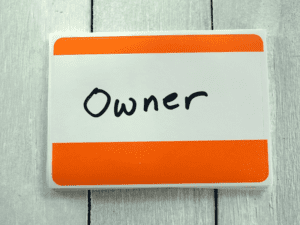
 The Property Management Show
The Property Management Show Preparing Your Property Management Company for a Profitable Sale with Scott Duke of OpnRoad
Welcome back to The Property Management Show.
On today’s episode, we’re talking to an expert on mergers and acquisitions, who has specific experience in property management. We’re talking to Scott Duke, of OpnRoad. He’s talking about the things that make a difference in the sale of a property management company. Your buyer and your profit will depend a lot on your contracts, your efficiency, and your team.
 Introducing Scott Duke
Introducing Scott Duke
Scott and his wife bought and ran a property management company in Revenstoke, Canada. They grew their company for seven years and then sold it for 10 times the amount of what they bought it for. The company was sold to Western Trust, a private equity company out of Utah. Before that, he worked at a property management company in Ontario. He has experience working with three-person companies and those that have a staff of 25.
His story of buying and selling that Canadian property management company is a bit of a cautionary tale.
When they bought the company, there were 30 properties under management. Out of those 30 properties, only six had proper contracts with the owners. It wasn’t a sellable asset when they took it over. But, what they really wanted to buy were the brand and the website, and otherwise it felt like they were starting from scratch. It was not a massive acquisition.
Scott realized that he thought property management meant taking care of people’s properties, but really, he was managing finances. It’s a cash in – cash out business model, and he had to make sure his owners had the money they needed for their mortgage payments.
One specific event triggered his desire to sell that company.
It was Christmas Day in 2016 or 2017, and he was under a trailer, defrosting pipes so the family living there could have water on Christmas. That’s when he realized he didn’t want to own the company anymore.
When the owner is under a trailer with frozen pipes, you know that the company relies too heavily on that owner.
So, he spent three years making it an acquirable asset. Scott wanted the company to be something that someone would want to buy.
The starting point? Making the business less dependent on Scott.
 Making a Property Management Company Less Owner-Dependent
Making a Property Management Company Less Owner-Dependent
Scott says it’s all mindset.
At OpnRoad, Scott and his team sell businesses. They work within all industries, but a lot of businesses they sell are property management companies. They all have to get to a certain size before they can be sold. So, he’s talking about owner dependency all the time.
How do you remove yourself from that dependency?
Scott says you will be trapped in your business until the business cracks through the million or two million revenue mark. Until that point, there’s just not enough cash in the business to pay to replace yourself. You are buying your time and you’re buying your freedom.
You want to focus on yourself as a business owner, not a business operator.
A lot of owners get hung up on the idea that no one can do what they do as well as they do it.
Scott tells entrepreneurs to embrace that. It’s true. But, it won’t be that way forever. The person you hire isn’t going to be as good as you on Day One. The training and the investment into that person makes them as good as you.
His slogan is this: Every Day a Step Away.
You’re getting a further step away from operating your business every single day.
How to Avoid Hiring Bad Apples
A lot of business owners worry about investing time and training into someone who may not work out. Having hired across 11 companies with a total of more than 200 staff, Scott understands that bad apples do get into the bunch once in a while. He has a specific model:
- Be a good leader: Make yourself better. The people you attract to your company will be 70 percent as good as you are. Humans only want to work with people who are further along than them and achieving more. They want to grow to your level. So, to get good people, you need to be a better person. Invest in your education. Become a leader locally through volunteer work. Grow personally and develop professionally.
- Have a good marketing package: You want to attract good people to your business. You’re posting a job into a competitive labor market. Stand out with marketing materials that will attract better people to your job and your company. Otherwise, you’re recruiting from other companies to find good talent.
- Retain those good people: You want to keep your best employees by having consistent operations and good training within your business. You want a solid and positive company culture full of people who are happy to be there.
All of this stuff is hard, he cautions. But, the drudgery for the rest of your life is worse.
How do you avoid the employees you don’t want to work with? Scott has two ideas:
- Run them through psychometric testing. You can use different models like PSIU or Myers Briggs. This will ensure you have the right person for the job. If you’ve never done this type of testing before, go into that rabbit hole. You need to know personality traits. The type of person who excels at bookkeeping is different from the person who excels at leasing and showings. And, a lot of people don’t know themselves. Test to find out what they don’t know.
- Get them to do some work before you formally hire them. Offer trial work, for which they will be paid, and see how they do before you make an official offer.
When you get the A player, your life changes. So does your company.
 What Property Management Owners Need to Know about Selling
What Property Management Owners Need to Know about Selling
Scott says the most important thing you can remember if you want to sell your company is that you’re selling contracts.
You’re selling future cash flow streams that come through contractual agreements. If your contracts aren’t in good shape, you don’t have a saleable company.
Contract quality matters. Recently, a sale was delayed by over 4 months because a property management company’s contracts were outdated, expired, or not even signed.
Term and contract length is the value of your business.
You need a good staff. You need a good reputation. But, your buyers will look at your contracts before they make an offer.
Scott also reminds company owners that you cannot sell to someone smaller than you. That won’t maximize your value. When you’re selling to a company that’s bigger, they’re probably more sophisticated and organized. If you don’t have everything in place, those companies won’t want to acquire you.
What about the team?
Buyers are acquiring teams of people as well as contracts.
This is especially important now, when finding good talent is so difficult. Good operators of companies are hard to find. People will buy companies just to get management teams and technicians.
But, here’s the truth: company buyers are only going to care about bringing on the good team members. They probably already have good team. They won’t want your mediocre people.
Efficiency is important, too. When your profit margin is above average, you’ll earn above average on the sale. You’re showing that you’re more efficient and your buyer will know that they get to keep more of the money that the company makes.
That’s attractive.
Is technology the answer to efficiency?
Technology is a big part of the efficiency bullet, especially when you’re looking at your profit and loss statement. Most property management companies can see that people are their biggest expenditure. Property management is a service business, and humans are delivering that service.
So, while technology can help you be more efficient and profitable, you need to have people in place who can leverage that technology. Otherwise, you’re just spending money on new software and systems and it’s not improving anything.
If your people aren’t being as efficient as they should be, they need to be trained better. Scott put everything on iPads so the team could take photos and notes and keep everything in the same place. Leases were digitized. He has nine people running a business that should require 20 employees. This is possible because they’re more efficient and they know how to use technology.
 Preparing to Sell Your Property Management Business: Your Timeline
Preparing to Sell Your Property Management Business: Your Timeline
Once deciding to sell a business, an owner can sometimes just check out, feeling done with it all.
But, it should be the other way around. If you decide to sell and you want to maximize the value of your company, put in the work.
Scott says it depends on the timeline, and also acknowledges that most people don’t want to do the work. Property management companies are in high demand right now. So even if your business isn’t in the best shape, you’ll be able to sell it. Clean up your contracts and get the financials in order, and you can sell.
If you’re planning to sell within a year, just get the basics taken care of.
If you’re planning to sell in three to five years, it’s worth the effort to build that business into something even better. Then, sell it for more. You’ll make more money now, and as your business begins to work better, you’ll have more free time.
You can really move the dial if you have a few years to work on this. A million dollar company can increase their valuation by $200,000. If you’re a five million dollar company, expect to move that dial by $1.5 million or even $2 million. A 10 million dollar company might move the dial by $5 million.
Exit Strategies: Who Will Buy You?
Scott has a guide that breaks down who the likely buyers are for your company. He offers earnings thresholds as an easy way to understand what’s possible.
- If you’ve got $250,000 in earnings, you’re probably selling to an individual owner/operator.
- If you have earnings that hit $500,000 to $1 million, you could sell to private equity firms as well as strategic buyers.
- Anything over $2 million in earnings, and you can sell to anyone.
You unlock different buyer classes as your company grows.
These buyers are not that different under the hood, but the way you earn money will be a bit different. A strategic buyer will hold your company for the long term. They’ll pay cash and some terms for the acquisition. Private equity firms are strategic. They’ll pay a bit more because they know they’re going to ultimately sell your company for more. You’ll get cash from them at the sale, and you may get a bit more later, when the private equity buyer sells the entire fund, which includes your company.
There are claw backs and contingencies when it comes to how many contracts the new company keeps. Scott reversed that, and actually got paid more by bringing in more contracts after the sale. This is not something everyone is willing to do, he cautioned, but since he had more free time, he was able to get out there and hustle up more business for the property management portfolio he had just sold.
Scott’s big pieces of advice as we conclude this interview are:
- Remove owner dependence and decide on the next strategic hire.
- Systemize and organize your business. If you haven’t implemented tech yet, do it now, and here’s a tip: look at companies that are five times bigger than you. What kind of software do they use? You should use that too, because those are the companies that will ultimately buy you, and if you make tech integration easier on them, they’ll pay you more.
- Keep your contracts up to date.
- Cultivate a good team.
Check out OpnRoad and their approach to mergers and acquisitions. If you have any questions about Scott and what we’ve discussed, please contact us at Fourandhalf.
The post Preparing Your Property Management Company for a Profitable Sale with Scott Duke of OpnRoad appeared first on Fourandhalf Marketing Agency for Property Managers.
